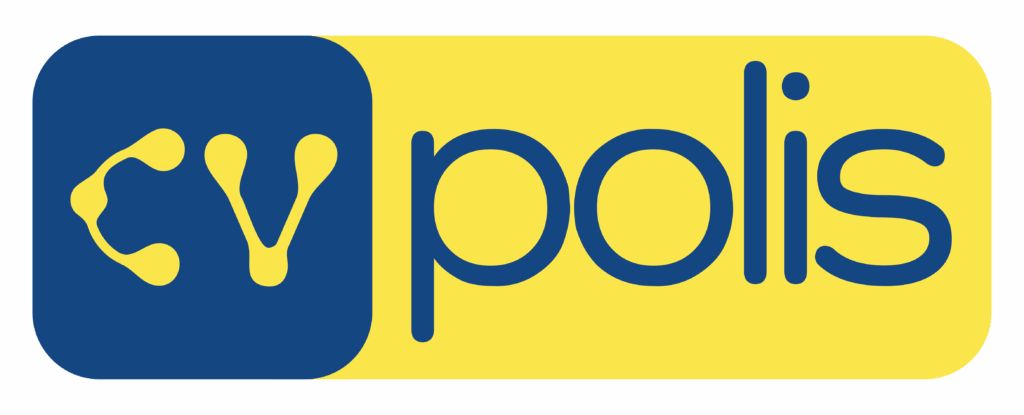Recruiting is about candidates’ abilities, possible contribution, and cultural fit, not biases. But many industries have shown the influence of biases in recruitment without even knowing it. For decades, candidates have been assessed by their skills and every factor they can’t control (their name, age, gender, and resume format).
But the new evolution of Artificial Intelligence (AI), is transforming recruitment tech. AI tools are changing recruitment in the way people hire. AI-based hiring platforms like CVPolis are minimizing bias, improving equity and ensure that every candidate has an opportunity to demonstrate their talent. Let’s explore how.
What Hiring Bias Actually Looks Like?
Often, bias is not explicit. Bias often arises from unconscious preferences and habits repeated over time. Examples include the following:
- Affinity Bias: Preferring candidates who are similar in background, interest, or experiences
- Name Bias: Making assumptions based solely on how “familiar” or “foreign” a name looks
- Educational Bias: Ranking some universities above others and not considering the set of skills
- Resume Gap Stigma: candidates who have gaps in their employment for bona-fide reasons
- Gender & Age Bias: Even if only subconsciously, associating roles with specific genders or age groups
It’s these biases that may lead recruiters to not consider amazing talent for a role while also reducing the diversity of their workforce.
How AI Levels the Playing Field?
Artificial Intelligence removes subjectivity from the beginning of the hiring process. Instead of using irrelevant information to get in the way, AI systems evaluate candidates against objective, consistent criteria. Here’s how CVPolis and similar platforms assist you:
- Anonymized Screening
During the initial review, potentially sensitive information, such as name, age, gender, or other personal identifiers, are filtered out. Skills and abilities, not identity, create the first impression.
- Job Description (JD) Matching
AI instantly measures resumes against the job description’s requirements. Instead of using “gut feeling”, candidates are ranked by how their skills and experience align.
- Data-Driven Insight
AI allows you to provide measurable scores and compatibility percentages instead of subjective impressions, which made short lists more transparent.
- Skills-first approach
Not only do achievements, certifications, and hands-on experience matter, but so does what a brand says about the former and current roles on a resume.
Skills Over Stereotypes
Recruitment practices often rely on shortcuts such as grand university degrees, formal work experience filled with labels, etc. While they sometimes count as qualifications, they are not always indicative of the candidate. AI breaks down the defined barriers of education and previous work experience, by:
- Equally weighing candidates with less formal and credible educational or work background
- Making room for transferable skills that would otherwise get overlooked; and
- Giving external candidates (career switchers, self-taught professionals, etc.) a level playing field with traditional recruitment candidates.
This strategy ultimately opens the labour pool and gives organizations the opportunity to discover great talent who may not otherwise have been considered by traditional hiring practices.
Uniformity in Evaluating
Human decisions may vary,they may change from mood, workload, or unconscious bias.
AI offers consistency:
- Standardized Resume Review → Every resume is evaluated by the same standards.
- Objective Scoring → Defined measures for skill and experience.
- Uniform Judgments → Candidates are compared equally, without subjective bias.
To recruiters, this means quick and reliable shortlists. To candidates, this means fairness and predictability.
Why It Is Important for Organizations?
Eliminating bias is not just a moral obligation it’s a competitive advantage. Organizations that are committed to utilizing AI for fair hiring have:
- More Diversity & Innovation
Individuals from a variety of backgrounds solve problems differently and create more innovation, which leads to improved business results.
- Higher Retention
When people are confident, they were hired based on skills and ability, they are valued employees and stay committed to the organization.
- Better Employment Branding
People know fair hiring organizations, and they also know the organizations that strive to be fair. Fair hiring organizations can become leaders in their industry and attract the best talent and get to the top of the list as progressive, people-first organizations.
- Time Savings & Cost Savings
AI reduces hiring time, and the time spent on manual recruiting processes and reduces effort while ensuring fairness.
The Broader Context: AI as a Driver of Inclusive Workplaces
In addition to hiring, AI can support organizations to:
- Identify skill gaps in teams.
- Recommend bias-free training and career development.
- Monitor diversity and inclusivity metrics to ensure long-term advancement.
AI can create not only a fair hiring process but an inclusive work environment in which equity and creativity flourish.
Final Thought
Bias in hiring has long been a problem – sometimes explicit, but often covert and inscrutable. Today, even with bias in AI sometimes being visible, organizations are better positioned to eliminate bias and raise fairness in hiring.
At CVPolis, we understand that it’s not just about being fair – we want to empower both candidates and recruiters based on skills, capability, and achievements. Additionally, through less bias and improved transparency, we hope to help organizations build stronger teams while empowering job seekers attain opportunities they rightly deserve.
The future of hiring is not just smarter hiring – it’s fairer, more inclusive hiring harnessing the power of AI.


